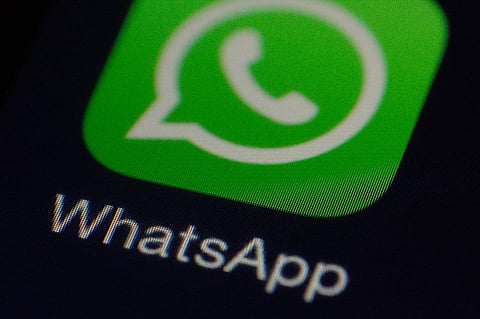
- Home
- न्यूजग्राम
- NewsGram USA
- India
- World
- Politics
- Entertainment
- Culture
- Lifestyle
- Economy
- Sports
- Sp. Coverage
- Misc.
- NewsGram Exclusive
- Jobs / Internships

Anti-vaccine misinformation, some of it from social media posts in the West, is spreading in India on WhatsApp, undermining efforts to root out measles and rubella in a country where tens of thousands of people are struck by the diseases each year.
Dozens of schools in Mumbai have refused to allow health officials to carry out vaccinations in recent months, largely because of rumors shared on Facebook Inc.'s popular messaging app about the supposed dangers.
Several thousand children have missed out on treatment so far, according to officials at the United Nations Children's Fund. In New Delhi, a campaign to vaccinate students at schools has been halted by scared parents.
"It's rumors on WhatsApp" that are the chief culprit, said Sonia Sarkar, a Unicef official in New Delhi. "They've traveled faster than the vaccines."
A WhatsApp spokesman declined to comment about messages containing antivaccine information, but noted the company has undertaken educational campaigns in India and made technical tweaks to the app to try to dissuade users from forwarding false news. WhatsApp has an estimated 300 million users in India, where a boom in internet usage in the past three years has brought hundreds of millions of people online for the first time.
The spread of misinformation about vaccination shows the challenge WhatsApp faces handling controversial content on the encrypted service, as Facebook Chief Executive Mark Zuckerberg pivots globally to private messaging platforms.
More than 100,000 people die every year globally because of measles, most of them children, according to the World Health Organization. About a third of those deaths are in India, Unicef says. Rubella causes tens of thousands of birth defects in India every year.
FILE – The WhatsApp app logo is seen on a smartphone in this picture illustration. VOA
In the U.S., measles used to be rare but has spread to 15 states this year as people have avoided inoculation because of religious views and misinformation about vaccine safety.
Many of the same reports that have misled Americans have been spread in India, typically through WhatsApp, analysts and health officials say. The materials being forwarded among parents in India are often taken from groups in the U.S. that post antivaccine videos on YouTube and Facebook.
"Don't use vaccinations. Save the lives of your children," says one forwarded WhatsApp message in two Indian languages that was provided by health officials and reviewed by The Wall Street Journal.
The message claims vaccines are linked to autism and other disorders. "It is a moral duty to all of us" to spread the message, it reads. The message provides links to U.S.-based YouTube channels with names like The Truth About Vaccines and iHealthTube.com.
Appended to the end of the message is the name and phone number of the sender, Kaleem Yusuf Abdullah, an environmentalist in the Indian city of Malegaon, about 170 miles from Mumbai.
"I have seen many videos on YouTube," he said in an interview. "After watching these videos I was in doubt" about the safety of vaccines. "I'm not convinced by doctors" who proclaim vaccines are safe, he said.
The messaging service has made it harder to forward messages to large groups of people and this month launched a project that enables users to forward dubious messages for debunking. The Wall Street Journal has in recent days submitted to the service 10 messages—including some containing antivaccine misinformation that were shared by local health officials—but hasn't received responses about the messages' veracity. The service says it tries to provide classifications within 24 hours and cannot respond to every submission.
WhatsApp on a smartphone device. Pixabay
India is vulnerable to potential damage from incorrect information about vaccines. The vaccination rate among children in the U.S. is still above 92%, a level considered adequate for preventing widespread outbreaks. But in India, only about 88% of 1-year-olds had been vaccinated, meaning there is greater risk.
Worries about vaccines have existed for decades, but antivaccine messages have blossomed in the internet age, and fear-inducing material can spread quickly on social media.
Also Read- Tesla CEO Elon Musk Makes Big Claims About Model 3 on Twitter
In India, people who are new to the internet have, in effect, not yet been inoculated against false reports, said Praful Bharadwaj, who coordinates vaccination efforts for Unicef in India's northern state of Uttar Pradesh.
"You don't have any control over WhatsApp," he said. (IANS)
